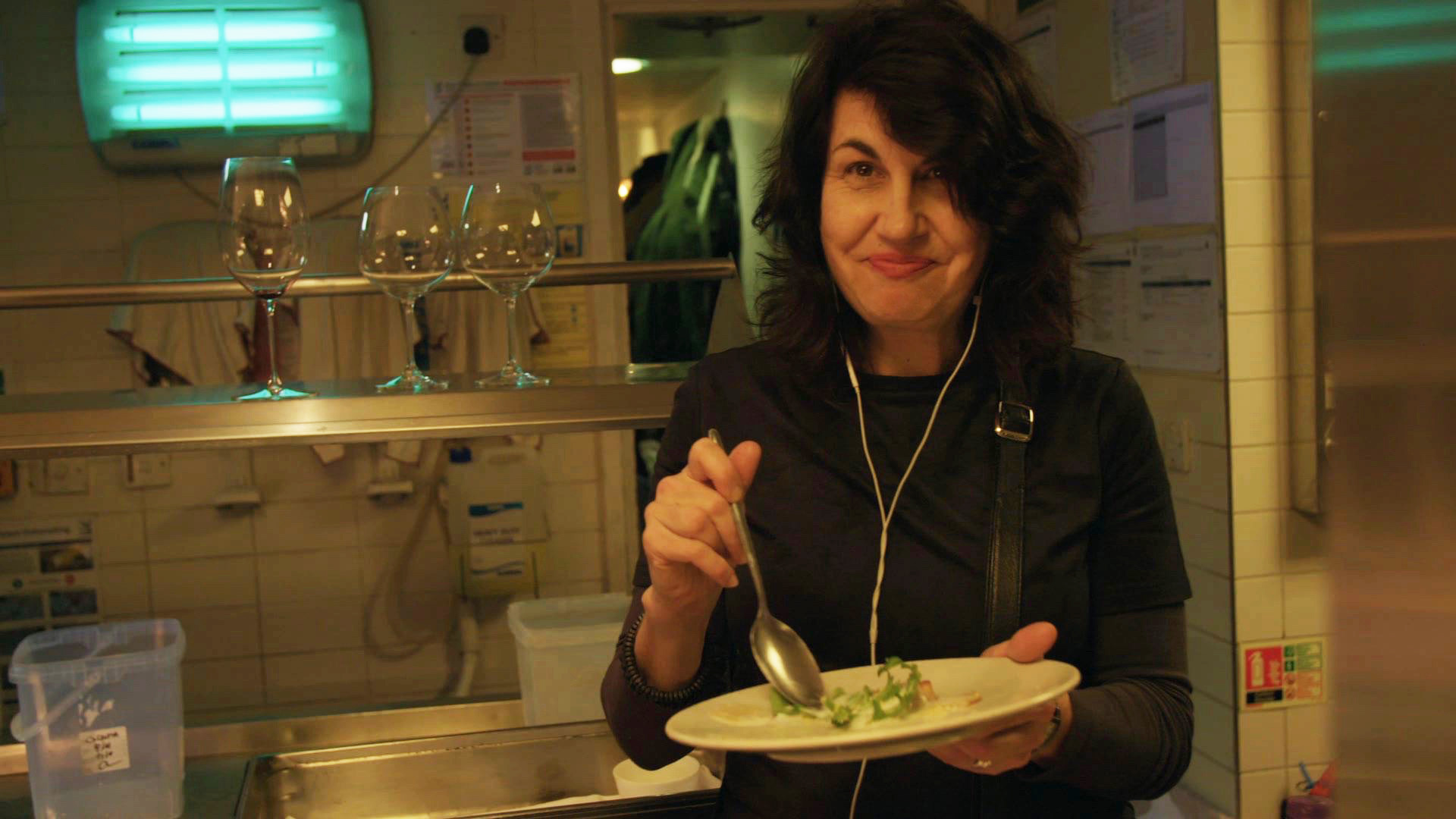93Queen
(USA, 85 minutes)
Dir: Paula Eiselt
Programme: World Showcase (World Premiere)
Movies about underdogs fighting for their rightful place have built-in appeal. 93Queen expertly takes you into trials and tribulations, victories and reversals right out of a narrative film. The film is about Hasidic women who want to set up an all female emergency ambulance service in Brooklyn’s Borough Park, a neighbourhood the film refers to as a “self-contained bubble” of ultra-orthodox Jewish life.
The story’s antagonist is, of course, the stern Hasidic patriarchy that insists women belong in the home cooking and taking care of children. The men also argue that women would be incapable of dealing with difficult emergency situations, or match the all-male response times of EMT’s (Emergency Medical Technicians) affiliated with Hatzolah, the largest ambulance corps of volunteers in the world.
The doc has its funny moments like glimpses of Hatzolah’s promotional video in which bearded, yarmulke-wearing men rush towards the camera like superheroes in a Marvel picture, complete with pounding score. Hatzolah, which in the film exemplifies the Borough Park patriarchy, does everything it can to block the women from setting up their rival service, Ezras Nashim.
Ironically, one of the driving motives behind the project is the protection of Hasidic women’s modesty codes. Women are forbidden from touching men they are not married to, or exposing their bodies in any way. If a woman is having a crisis in childbirth, those Hatzolah dudes will see everything. To spare mothers from that humiliation, the EMT’s of Ezras Nashim would specialize in dealing with baby delivery problems
A doc that successfully delvers its theme though strong characters, 93 Queen focuses on Rachel “Ruchie” Freier, who imagined Ezras Nashim and fights tooth and tail against all odds to give it life. It would be “the biggest failure of my life if we don’t get it off the ground,” Ruchie says to another character. The stakes for her and the women of the neighbourhood are huge.
But Ruchie’s is not one of those rebel women who breaks away from the fold because she’s an atheist or a lesbian. While she is clearly an ambitious modern woman who wears crisp business suits, she embraces her traditional role as a devout Hasidic woman. Ruchie is happy to bear children and manage domestic chores, which she does efficiently. We see her davaning over Shabbat candles. We watch her in the kitchen, cooking and kneading dough, always on a tight deadline.
We also discover that Ruchie is a lawyer who dreams of becoming a District Court judge. Her battle for the ambulance service spins off in a subplot: her election campaign for the judgeship. As Ruchie organizes and participates in EMT training sessions and learns how to set up a dispatching system, she gets vilified as a “radical feminist” out to destroy the Hasidic way of life.
The attacks come in emails, online, and in person. When the service is up and running, it’s flooded with prank calls. Respected rabbis won’t endorse Ezras Nashim, and she is even threatened with an “or else,” possibly from Hatzolah. One of the women jokes they are in a Mafia situation. This is a doc with many lines of tension.
Then at one point, we confirm another layer of Ruchie’s character, one that we’ve suspected. The real-life superwoman is magisterial and unyielding. When she dogmatically insists on a certain rule, the other women are disturbed, and one quits.
93Queen benefits greatly from a protagonist who is not a simplistic breaker of glass ceiling. She comes through in stark contrast with Hatzolah’s Jewish superhero fantasies. Ruchie sums herself up in the film when she says, “You can’t narrow me down to a few specific words.”










